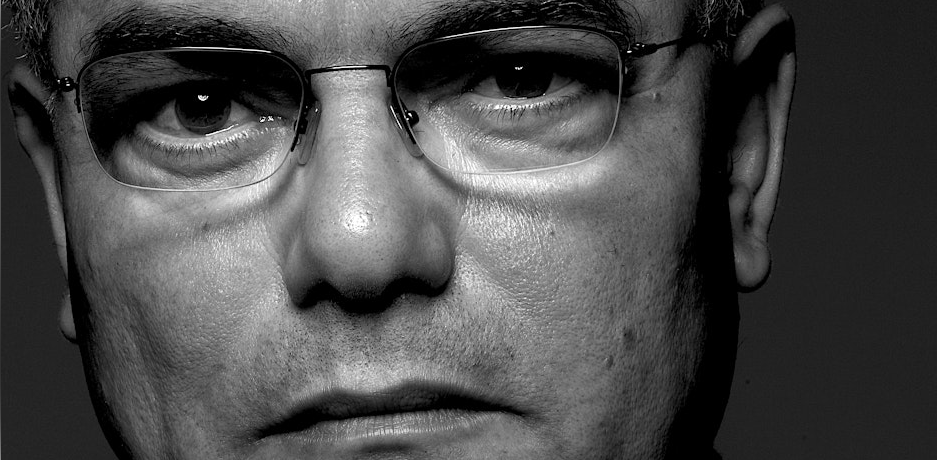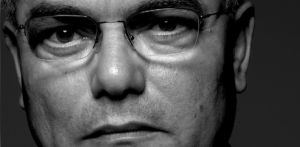From the Rural to the Stage: Ahmed El Maanouni's Morocco

Date/Time
Date(s) - 04/22/2024
6:15 pm - 8:00 pm
Categories
Cost:
Free USD
Contact Person:
Email:
sofheyman@columbia.edu
Website:
https://www.eventbrite.com/e/from-the-rural-to-the-stage-ahmed-el-maanounis-morocco-tickets-830500658827?aff=ebdssbdestsearch
Phone:
1 212-854-8443
Organization:
The Society of Fellows and Heyman Center for the Humanities

NEW YORK, NY
A writer, director, cinematographer, and producer whose work includes some of the most emblematic titles of Moroccan cinema, Ahmed El Maanouni is the first Moroccan director to have caught international attention, with films such as Alyam Alyam (1978) and Trances (1981), the first film Martin Scorsese selected for restoration in his World Cinema Project. Praised for his ability to take a close, perceptive, and realistic look at everyday life in Moroccan culture and society with no traces of folklore and exoticism, El Maanouni’s films, shorts, and documentary works also include The Eyes of the Gulf (1984), The Moroccan Goumiers (1993), Morocco-France: A Common History (2006), Burned Hearts(2007), Conversation with Driss Chraibi (2008), and Fadma (2017).
The event will center around the work of Ahmed El Maanouni in the context of Maghrebi cinema and culture and in relation to the inclusion of Trances in the Film Foundation’s World Cinema Project/The Criterion Collection. Attending the event in person, Ahmed El Maanouni and the speakers will share their insights in discussing two of the director’s best-known works: Alyam Alyam—a film that captures the life of agricultural workers in the Moroccan countryside narrating their desire to emigrate to Europe (which like Trances has been restored by the Film Foundation’s World Cinema Project)—and Trances—a film whose interweaving of concert footage, interviews, and archival footage captures the excitement and the relevance of the music of the legendary Moroccan group Nass el Ghiwane.
About the Speakers
Omar Berrada is a writer, curator, and translator whose work focuses on the politics of translation and intergenerational transmission. He was the co-founder in 2010 of Dar al-Ma’mûn, an art and community center in Marrakech, where he established a free lending library, hosted writers and artists in residence, and spearheaded afterschool and literacy program. Berrada is the author of the poetry collection Clonan Hum (2020) and the editor and co-editor of several books, including The Africans, on race in North Africa (2016); La Septième Porte, a posthumous history of Moroccan cinema by Ahmed Bouanani (2020); and Another Room to Live In: 15 Contemporary Arab Poets (2023). He is currently working on a book project and collaborative performances that seek to examine and re-imagine racial dynamics in North Africa beyond the persistence of anti-blackness.
Madeleine Dobie is Professor of French and Comparative Literature at Columbia University. Her research areas include francophone/postcolonial literatures and cinemas of France, the Maghreb, the Middle East and the Caribbean as well as the cultural dimensions of migration and diaspora. She also teaches and writes about eighteenth-century French culture, particularly with regard to orientalism, colonialism and the history of slavery. Her publications include: Trading Places. Colonization & Slavery in Eighteenth-Century French Culture (Cornell University Press, 2010), and Foreign Bodies. Gender, Language & Culture in French Orientalism (Stanford University Press, 2001. Paper, 2003). Her two current book projects are: After Violence: Society, Politics and the Algerian New Wave explores Algerian literature, film and sites of cultural production since 2000, and Belated Memory: Revisiting Revolution at the End of Life, a book concerning memoirs about the Algerian revolution written decades later by people in the later decades of life.
Abby Lustgarten is a Senior Producer with the Criterion Collection, where she has prepared over 125 home video editions, including the box sets The Apu Trilogy, Paul Robeson: Portraits of the Artist,Ingmar Bergman’s Cinema, Dekalog, The Signifyin’ Works of Marlon Riggs, and four sets of the Film Foundation’s World Cinema Project (one of which includes Ahmed El Maanouni’s Trances), as well as single-edition films by Spike Lee, Martin Scorsese, Charlie Chaplin, Gina Prince-Bythewood, Krzysztof Kieślowski, Seijun Suzuki, Kirsten Johnson, Jean-Pierre Melville, Akira Kurosawa, Jean-Luc Godard, Sofia Coppola, Robert Altman, Haskell Wexler, Bing Liu, and other directors from around the world. Before joining Criterion in 2002, she spent ten years in independent documentary production for both theatrical distribution and television broadcast. She has also served on juries for the New York Foundation on the Arts.
Florence Martin is Dean John Blackford Professor of French Transnational Studies at Goucher College. She holds a Doctorate from Université de la Sorbonne, Paris III, and has published articles and book chapters internationally on the blues, francophone literature and French and francophone cinema. Her recent work focuses on postcolonial cinema, the cinema of the Maghreb (Morocco, Algeria and Tunisia) and French and Francophone women’s films. She is the author of Screens and Veils: Maghrebi Women’s Cinema (Bloomington & Indianapolis: Indiana U. Press, 2011), and the co-author of Moroccan Cinema Uncut: Decentred Voices, Transnational Perspectives (Edinburgh University Press, 2020). Her current book project, Farida Benlyazid and Moroccan Cinema (Palgrave MacMillan, 2024), focuses on the work of Moroccan female director Farida Benlyazid.
About the Moderator
Alessandra Ciucci is Associate Professor of Music (Ethnomusiology) at Columbia University whose research interests include the music of Morocco. She is currently working on a book project titled Nass el Ghiwane and Moroccan Popular Music during the Years of Lead (1970s-1990s).









